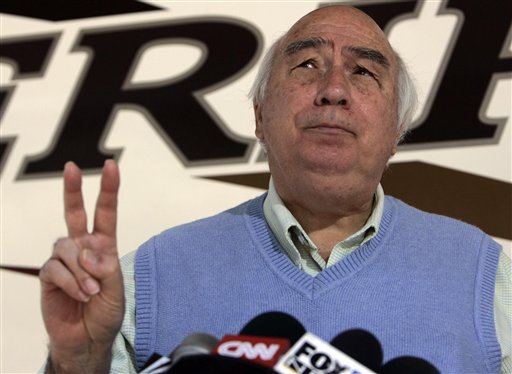Murray makes good on promise to sue John Oliver
June 22, 2017 by Ken Ward Jr.
As expected, Murray Energy and its CEO, Bob Murray, have filed a lawsuit against HBO and its Sunday night personality John Oliver over the blistering commentary on Murray and his company (watch it here).
You can read the lawsuit for yourself here, and this is how Murray Energy described it in the company’s press release:
The deceitful and damaging statements of Time Warner, HBO, and their operatives were clearly a deliberate attempt to assassinate the character of Mr. Robert E. Murray, a champion of the United States coal industry and patriotic American, and to destroy Murray Energy, a company which Mr. Murray founded nearly thirty years ago and built into the largest underground coal mining company in the United States. Allowing these false statements to stand unrefuted would be a disservice to the Company’s employees, who rely on Mr. Murray and Murray Energy for their continued livelihoods, and to the Company’s lenders, customers, and suppliers who depend on our integrity and performance.
The company continued:
The false and defamatory statements in this broadcast severely and destructively impact Mr. Murray, and all of Murray Energy, particularly our Mines in the State of West Virginia, where we are the largest coal mining employer in the State, as well as coal mining itself, one of the primary foundations of that State’s economy.
This suit comes after legal action by Murray last month against The New York Times over an editorial that paper published. Lawyers for the Times have filed a motion to have that case dismissed, and here’s part of what they said in their legal brief on that issue:
In publishing the editorial, The New York Times and its editorial board were commenting on a significant issue of public importance and concern and acted properly. All of The New York Times’ conduct is fully protected by well-settled legal principles under the First Amendment to the United States Constitution …
… The challenged statements in The New York Times’ editorial at issue are both true and expressions of opinion and commentary on a significant matter of public concern, not actionable under First Amendment precedent or applicable West Virginia law.

 Subscribe to the Coal Tattoo
Subscribe to the Coal Tattoo
